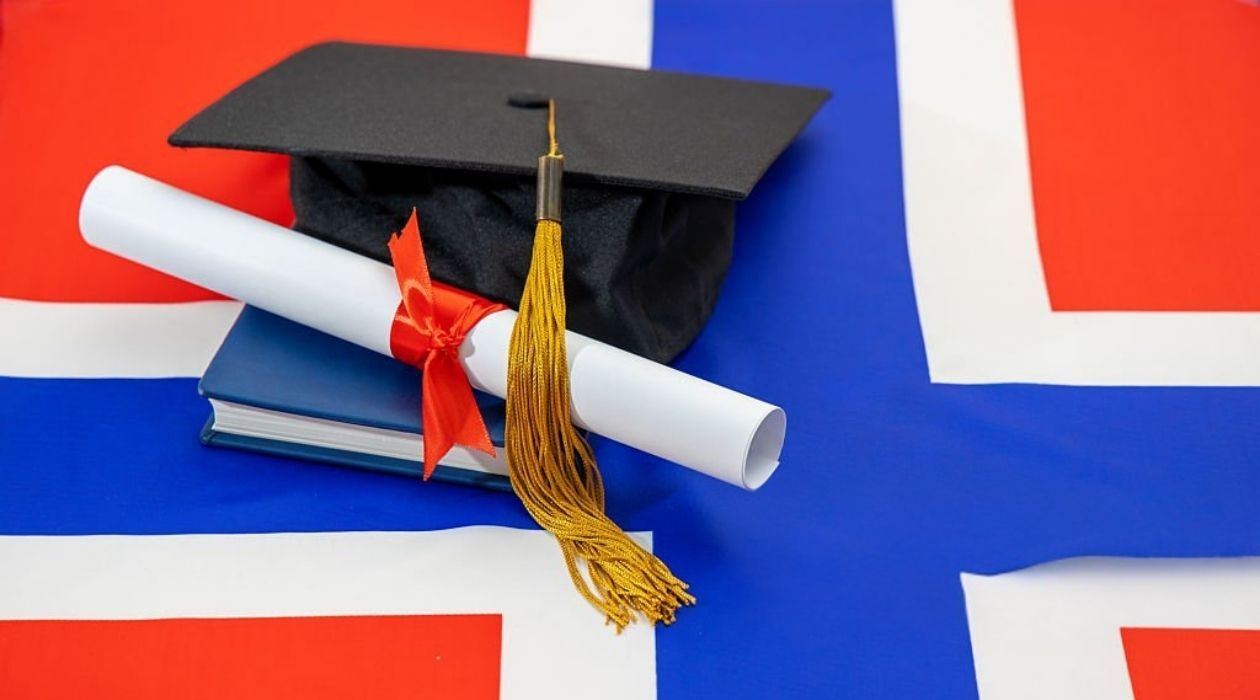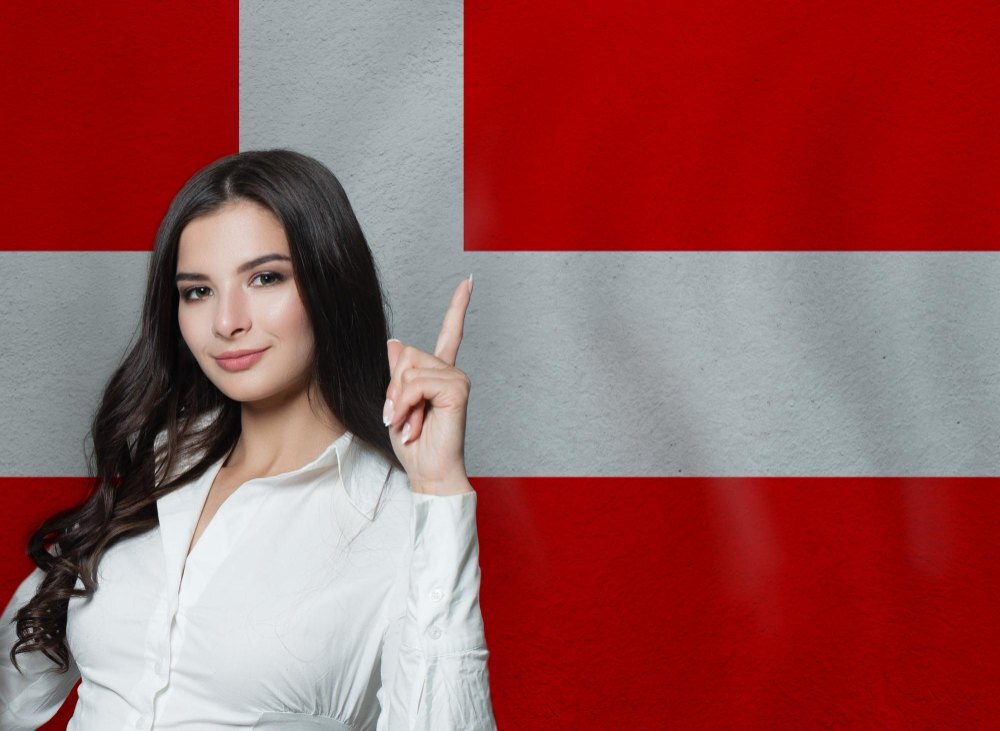
Requirements for Norway Student Visa from Nepal
Tuesday, 22 Oct 2024

Nepalese students often consider Denmark the best option for studying abroad for several reasons. The country offers an excellent education system and courses to choose from. However, before making a move, prospective students often make many queries, one of them being how to study in Denmark.
This comprehensive blog focuses on the specifics of studying in Denmark, covering the benefits of choosing Denmark for higher education, the application process, the overall costs of expenses in Denmark, as well as a list of top universities and available universities.
To begin, let's explore the benefits of pursuing higher education in Denmark. The country is known for its exceptional education system, which is among the world’s finest. Furthermore, there are more compelling reasons to consider Denmark as a destination for your studies. Here's why.
Nepalese students like yourselves can find Denmark to be a country with a strong emphasis on a good standard of living and safety measures. This, in turn, creates a nurturing setting for academic pursuits and personal growth.
The Danish University is renowned for its top-notch education and welcoming environment. They provide you with high-quality teachers, well-equipped facilities, libraries and an inclusive learning atmosphere. They offer various study programs available in both English and Danish.
Denmarks follow a work-as-you-study policy. This means you can cover your expenditures regarding education and prescribed medication. This, in turn, provides you with endless opportunities to gain valuable practical skills. The university allows you to work for 20 hours per week and full-time during the semester break.
After completing your education, pursuing a career can reduce the financial strain of being a student. It is important to recognize that these careers relatively offer higher salaries starting at 3353.43 euros per month.
Denmark is home to the best cuisine, scenic landscape and unique culture. The Danish university is filled with happy faces of international students exploring museums and historic sites. You get the opportunity to interact with many people and be exposed to a multi-connected culture.
Following our discussion on the reasons for applying to universities in Denmark, let's shift our focus to the requirements you’ll need. While the specific document requirement can differ depending on the university and your circumstances, we can provide a general overview of the key document that may be requested.
Now that we have covered the requirements to study in Denmark, we talk briefly about the process before you decide to study in Denmark. The procedure involves preparing documents to pay visa fees. After learning about these processes, you can make the most of the high-quality education in this nation. Here, we break the general procedure to make your life easier.
Know More About: How to Apply for a Denmark Student Visa
By now, you know that the visa application process involves several processes. Therefore, it's advisable to prepare the necessities, including a letter of recommendation, document and language proficiency, at least a year ahead of intake.
Denmark's secondary enrollment (summer intake) typically takes place from January to late March. Prior to applying, it's essential to verify that your desired programs are offered during the intake by reviewing the website of your preferred university.
Those who miss the application deadline can still apply in winter, avoiding a year-long wait. A second opportunity to apply begins in July and closes before the application deadline in September.
Most universities in Denmark schedule their courses primarily during Winter intake, which is the most preferred enrollment period. This intake usually begins from July to September. The online applications are usually open from November and are available until January. You can expect to receive the notification by early February or March.
As you are now familiar with the basics of studying in Denmark, let's talk about the total cost of studying there. So what is the total cost to study in Denmark? This expense can be categorized into three main groups. The rough estimation for each group is as follows.
The category of cost consists of all the expenditures and savings that you must demonstrate before your student visa is approved. While the specific details may vary with each instance, here is the basic information and associated expenses.
| Name of Items | Price Range |
| Passport | NRs. 10,000 |
| Language Test Exams | NRs. 30,000 |
| Case Number ID Number | NRs. 35,000 |
| Documentation | NRs. 50,000 |
| Tuition Fees | NRs. 8,00,000 to NRs. 25,00,000 |
| Bank Charge | NRs. 20,000 to NRs. 50,000 |
| Minimum Bank Statement | NRs. 15,00,000 |
| NOC Charge | NRs. 2,000 to NRs. 2,500 |
You must spend a considerable sum, both before and after your visa is granted. The amount of money after your visa is granted is as follows:
| Name of Items | Price Range |
| Consultancy Charge | NRs. 20,000 to NRs. 40,000 |
| A one-way ticket from Kathmandu to Denmark | NRs. 70,0000 |
| Cash In Hand | NRs. 2,00,000 to NRs. 3,00,000 |
| Misc | NRs. 20,000 to NRs. 50,000 |
| Shopping | NRs. 60,000 to NRs. 1,00,000 |
You should also record the average tuition cost for studying at the university in Denmark in addition to both costs before and after the visa is approved. Although the exact cost varies depending on the university you choose, they usually start at 45,000 DKK to 120,000 DKK per year. Both graduate and undergraduate programs are subject to this expense.
After covering tuition fees for Nepalese students studying in Denmark, we now guide you with a brief overview of the cost of living. Although the living cost may differ based on your personal lifestyle decision, we can provide you with a general idea of the expenses associated with living in the nation. Let's take a look at key aspects of living costs for Nepalese students.
In Denmark, there are three viable options regarding accommodation: private apartments, shared housing, and university dorms. The price varies on the option you select and could be anywhere between 44,693 and 11,682 Npr each month.
This expense category covers all the items related to food, clothing, groceries and other essentials. Depending on how you live, you could easily exceed 1 lakh every month. Furthermore, for individuals with limited finances, the monthly expenses are usually between Npr. 29,795 to Npr. 44693.
Along with food and transportation, it is crucial to budget for transportation costs. Denmark is blessed with a good public transit system. This means not having to own a car can save you money on transportation. As a result, most students frequently spend between Npr. 74448 to Npr. 14897 on transportation each month
While studying in Denmark, you would have to deal with these major costs. Apart from the previously mentioned costs, there might be a number of additional costs that go into the total cost of studying in Denmark. Thus, additional costs differ according to your particular situation.
Some of you might feel short of cash after learning about all the expenses and top universities. Fortunately, there are scholarships available in Denmark from both the government and university if money is tight and you can meet the requirements in terms of merit and education.
The Danish government scholarships are available to international students like those from Nepal based on academic achievement. These scholarships cover some or all of the tuition fees. Let's take a look at several scholarships.
The university-funded scholarships are comparable to government scholarships. This type of scholarship helps reduce financial strain on the student as it covers all or part of tuition fees. They are awarded based on financial situation and academic background.
Many educational institutions, particularly universities, provide you with courses that meet your interests and align with your personal and career goals. Here is a brief list of the universities that are best suited for you.
Denmark has a visa rejection rate of 5%, which means the acceptance rate of Denmark Student Visa is over 95% in the case of a Master’s program. The likelihood of approval of a Denmark visa is influenced by several aspects, but at AIMS Education, we can significantly boost your prospects. Our comprehensive support services are designed to guide you through the visa application process. This, in turn, minimizes the risk of errors and ensures that all criteria are met.
Pursuing higher education in Denmark offers Nepali students a globally recognized qualification and unlocks a wide range of possibilities. This includes a chance to pursue a career opportunity in Denmark. These are the factors that make Danish education a popular option for Nepalese students. And with the AIMS Education, you can make the most of the opportunities.
In this blog, we explored some of the key aspects of studying in Denmark, including various requirements and processes. We also provided you with the list of top universities in Denmark. We hope you find this helpful. If you seek further insights into various aspects of studying abroad, do check out some of our other blogs. And if you want the best services regarding studying in Denmark, look no further than AIMS Education, the best consultancy in Nepal. Thank you for reading till the end.
Other Related Blogs:
The minimum GPA required for a Bachelor’s program is a 2.75 CGPA; for pre-masters, it is a 2.5 CGPA; and for a Master’s program, the mandatory GPA is 2.5.
The cost of living in Denmark greatly varies depending on your personal spending and individual circumstances. On average, you can expect to pay Npr. 30,06,693 and Nprs. 79,70,106. This amount covers all the necessary expenses, from visa processing to tuition fees and living costs. It's important to remember that this is a general estimate, and if you prefer a more luxurious lifestyle, then the expense could increase significantly.
The ITELS and PTE scores required for admission to Denmark universities differ from one university to another. However, typically, a score for IELTS is 6.5 to 7, and a PTE score of 58 to 65 for undergraduate and 65 to 71 for graduate degrees is a standard range for admission.
Yes, Denmark is good for Nepali students. Here’s why.
The requirements for a student visa to study in Denmkark from Nepal vary depending on the individual situation, but there is a certain standard procedure that typically applies.
To be eligible for an undergraduate course, applicants must have obtained a minimum of 60 percentage in class 12. They should also demonstrate proficiency in English by achieving a score of IELTS 6.5 to 7.
Yes, of course, you can work and study in Denmark.